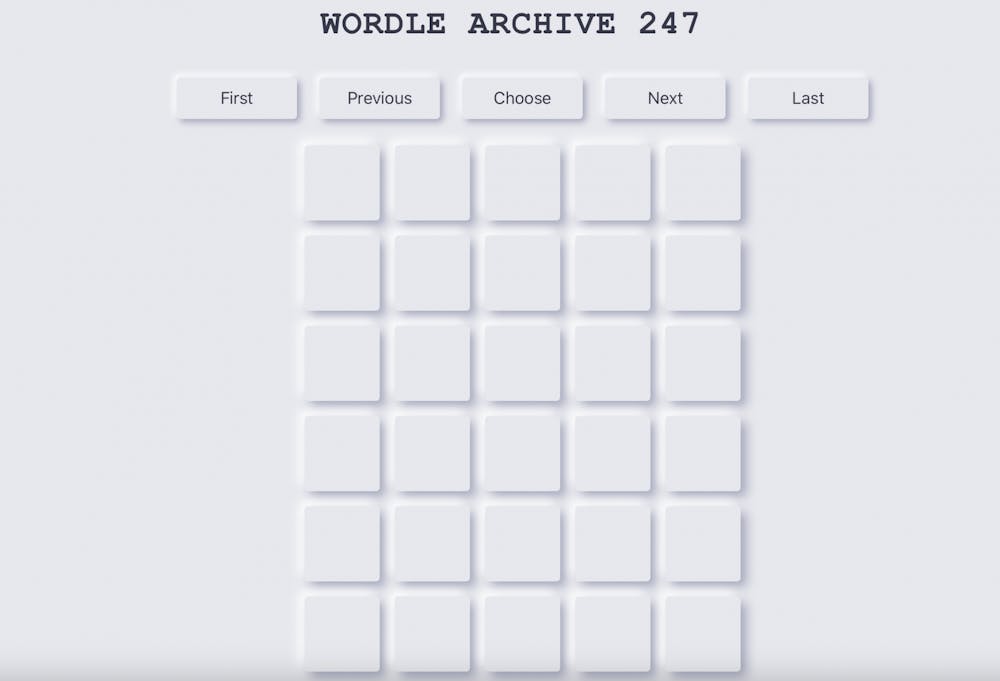Wordle, a daily internet game invented by Josh Wardle where users have six opportunities to guess a random five-letter word, has skyrocketed to popularity since its creation in October 2021. But Wordle resets each day, leaving users out of luck if they wish to go back to previous Wordles they missed.
This is what inspired Devang Thakkar, a fourth-year doctoral candidate in computational biology and bioinformatics in the Dave Lab at the Duke School of Medicine, to create the Wordle archive.
“I got into Wordle around Christmas. And I think a week or so after that, I missed one just because I forgot to do it one day, and so I wanted to go back to it,” Thakkar said. “So I was like, ‘How can I do that?’”
Upon realizing that there was no way to go back to the previous day’s Wordle, Thakkar grew determined to create a solution himself.
“I realized that if I changed the time of my computer to the previous day, it would trick the browser into thinking that it was yesterday, so I was able to solve that day's Wordle,” Thakkar said. It took Thakkar a couple of hours to figure it out, which is what inspired him to want to make it easier for others.
Thakkar initially turned to Twitter, where people had been posting each day’s Wordle grid. He made a script that took in approximately 200 tweets for each day’s model, which allowed him to narrow down the list of potential words to five to 10 words. He then wrote a script that would change the date in his computer, automatically go to Wordle and retrieve the answer and store the solution in a file.
After spending an entire weekend testing out these various scripts and models, Thakkar realized that the answer was actually in the source code itself. “So I could have done that in five minutes,” he said.
After a week and a half since Thakkar missed that one day’s Wordle, he successfully created an archive that allowed access to all previous Wordles.
“Technically, the [archive] word list goes to 2027. I can run it for 2,000 or so Wordles,” Thakkar said.
The Wordle archive, which went live on Jan. 9, is an open-source project, meaning that all of the code is publicly available on GitHub. Other coders continue to suggest various features to add, such as storing users’ previous answers for them to look back on.
“That's the beauty of open source. People just write code for you,” Thakkar said.
There were 4,600 users on the archive website as of Feb. 11, according to Thakkar. In the week prior, there had been 2.2 million users total.
Despite his success, Thakkar is not studying website development at Duke. He studies computational biology, writing codes for design and data visualization as he researches the possible causes for mutations that occur in blood cancers.
“I don't think I care about what I'm using it for as long as I'm solving some problem using code,” Thakkar said. “I just like solving problems.”
And of course, Thakkar still puts his problem-solving abilities into solving the Wordle each day.
Get The Chronicle straight to your inbox
Signup for our weekly newsletter. Cancel at any time.

Madeleine Berger is a Trinity senior and an editor at large of The Chronicle's 119th volume.

